Project Highlights

Reducing Fuel Oil Consumption in Rural Arctic Communities
September 04, 2024
This research investigates whether displacing fuel oil used for space heating with energy efficiency improvements and renewably generated electricity can substantially reduce households' energy cost burden in remote Arctic communities.

Displacing Wood Use with Electric Thermal Storage Heating to Improve Ambient Air Quality
August 20, 2024
This 36-month field study evaluates whether the use of Electric Thermal Storage Heaters can help reduce PM2.5 levels and reduce home heating costs. ETSH could help residents with an additional low-cost home heating option without generating local PM2.5.

August 19, 2024
BEEHIvE investigates how electrification can be applied to reduce emissions and energy costs and support integration of higher levels of renewable energy without hurting the overall stability of the grid.

2024 Alaska Electricity Trends Report
July 22, 2024
The 2024 Alaska Electricity Trends Report summarizes electricity data gathered from federal, state and utility sources. It provides an overview of electricity capacity, generation, consumption and price trends from 2011 to 2021.
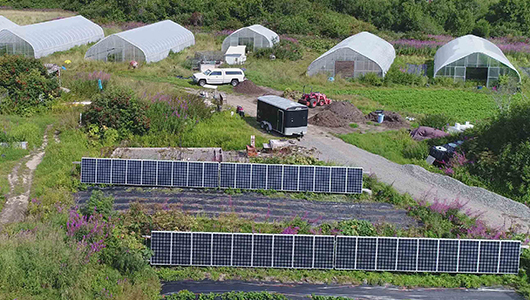
Agrivoltaics: Harvesting from Land and Sun
December 01, 2023
The agrivoltaics project investigates opportunities for maximized economic benefits and efficient use of land for clean energy production and sustainable food production in northern and rural North America.
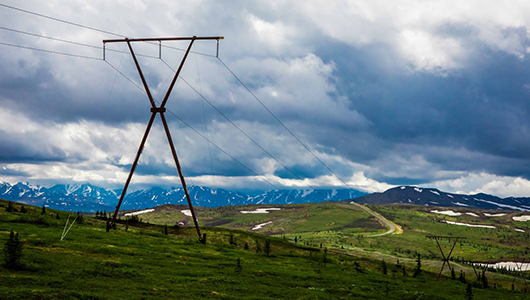
January 05, 2023
This project seeks to provide an independent, unbiased assessment to help inform future decisions by Alaska utilities and other stakeholders, while demonstrating the opportunities and challenges facing isolated regional electric grids seeking to decarbonize.

January 01, 2023
As a member of the UNIFI, or Universal Interoperability for Grid-Forming Inverter Consortium, ACEP attempts to advance grid-forming inverter technologies and to help provide new guidance for effective and stable inverter operations.

Beaufort Lagoon Ecosystems LTER
November 11, 2022
This project addresses questions about land/sea interactions, biogeochemical and biological composition, seasonal dynamics and long-term changes within lagoons along the northern Alaskan Arctic coast.

September 22, 2022
This project identified a Grid Bridging System (GBS) that allows costly diesel generators to turn off for periods of time and the entire system to run on renewables to reduce fuel consumption and environment impacts in Alaskan communities.
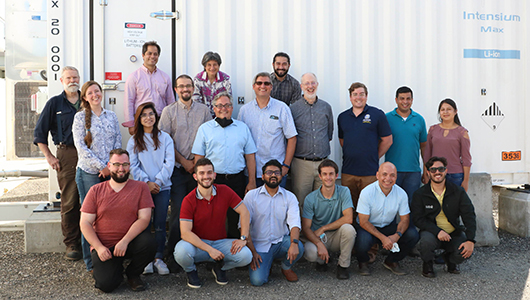
Modeling of Converter-Dominated Power Systems
September 21, 2022
The project intends to develop and validate models to assess the dynamic response of converter-dominated power systems across multiple spatio-temporal scales.

High latitude and cold climate solar PV
September 20, 2022
This project aims to better characterize the performance of solar photovoltaic (PV) arrays in high latitude and cold climates.

Tracking solar PV trends in Alaska
September 20, 2022
This project tracks the performance and cost of solar photovoltaic technology in Alaska.

Optimizing bifacial solar PV technology for high latitudes
September 20, 2022
This project aims to characterize how well bifacial solar photovoltaic (PV) panels perform at high latitudes.
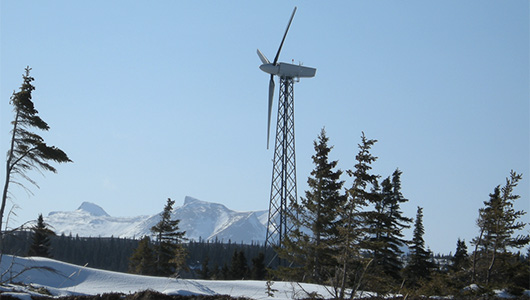
September 20, 2022
This project aims to restore the high penetration wind-diesel system and to simultaneously develop a real-world wind-diesel microgrid test bed for research in Kokhanok, Alaska.
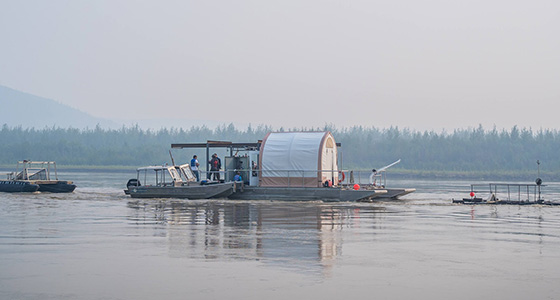
Submarine Hydrokinetic and Riverine Kilo-megawatt Systems (SHARKS)
September 01, 2022
This project aims to develop new technical pathways to design economically competitive hydrokinetic turbines for tidal and river currents.

September 01, 2022
This project supports infrastructure upgrades to the Tanana River Test Site, the river energy test site of the Pacific Marine Energy Center.

September 01, 2022
This project aims to determine the benefits and issues associated with integration of wave and other renewable energy sources into small grid systems.

September 01, 2022
This project was carried out to advance the Technology Readiness Level of the Water Horse hydrokinetic power harvester from 5 to 7.


